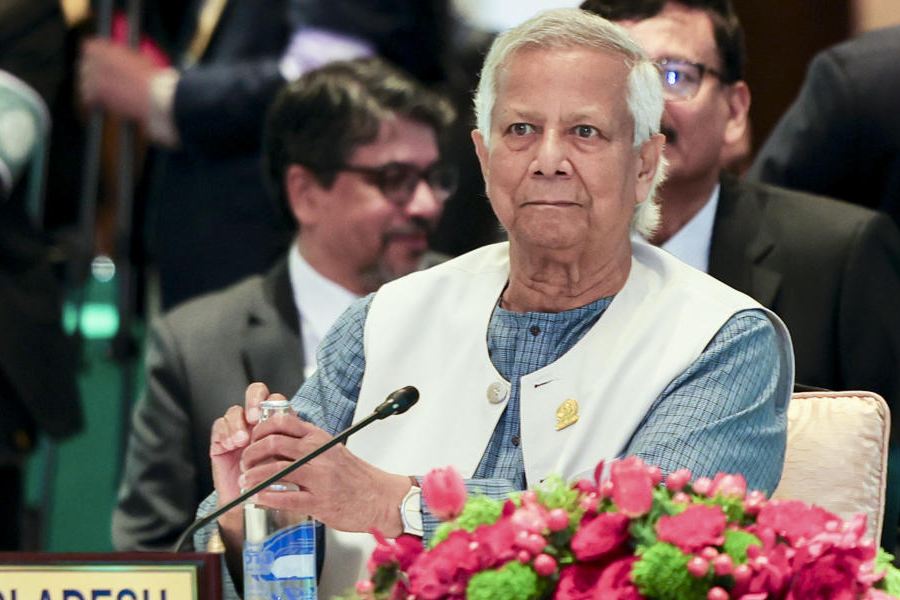|
|
A few years ago, I stood spellbound on the streets of Brussels. It was a carnival. With Ecuadorian dancers and to the beats of Ghanaian drummers, 15 thousand men, women and children were marching. Everyone held placards that scripted demands for rights to “People Without Papers”. Having arrived in Europe from various parts of the world, the protesters were newcomers and their supporters. The police kept a close watch. A series of cleaning vans followed us till the protest ended at a prominent European institution in Brussels.
I was mesmerized. Nowhere in South Asia could I ever imagine people without papers protesting. We mostly call such migrants ‘illegal’. The easy conflation of crime and terror with migration, and too much of patriotism, were to blame for this. In contrast, the visibility of the protestors in Brussels showed that political participation could be plural and inclusive, that people without papers could march openly and not be arrested. Newcomers were supported by non-immigrants, trade unions, people from NGOs and religious groups, and a scattered team of radical volunteers. Their public action unfolded as a broad social horizon. Multiculturalism, I mused. I took for granted the presence of Bangladeshi flower-sellers, Indian and Pakistani strawberry-pickers, domestic workers from the Philippines, Brazil and countries in Europe. They would, I presumed, soon join Europe’s earlier settlers, guest workers and people from the former colonies.
However, behind the scenes were other realities — of integrating within host societies. Multiculturalism was eroding. It was losing its political correctness in mainstream politics and everyday conversations. No longer was ethnic bashing a preserve of the extreme Right. In the series of meetings that followed the protests in Brussels, immigrants stood on podiums seeking to prove that they had acquired adequate language and social skills to be able to live on in Europe. Speeches followed in French and Dutch. They fumbled as they read aloud petitions from scribbled-over pages seeking the right to work. Cynics in the crowd sniggered at mispronounced words. Supporters noted more hours of language training. Often in the evenings, the Flemish right-wing party ran parallel press conferences. They blamed immigrants for escalating crime and using public resources. The rain lashed at everyone. It made all the papers soggy.
Integration is frequently invoked in Europe. However, from being crafted through dialogue and debate — as in the Netherlands for years — as policy options, it has turned into a political chant in countries like Germany. The new chant is a lament — it is also a precise one. It believes in the euphoria of sameness. The policies read, “Be one of us: discard your decadent customs, your culture and your homophobia.” The magic of long-distance migration disappears — that of immigrants often dwelling between the home left behind and the one arrived at. You have to ‘integrate’ especially if you practise Islam. So the Swiss ban minarets, the Germans wake up to the inability of former guest workers to be one of them and the Dutch ban the burqa for parliamentary support by an anti-Islamic party. The war against culture is on.
Even for minorities within Europe, the lack of integration is seen not just as a policy failure but a justification for expulsion. The elusive Roma — the mobile underclass within Europe — are expelled in large numbers. Member-states of the European Union have failed to integrate the Roma; allocated funds remain under-utilized. While Sarkozy expels the Roma in droves from France, Merkel assures Romania that Europe’s nagging problems with the Roma will not impede Romania’s entry into the Schengen zone.
Integration does not merely attend to bridging distances between non-migrants and migrants. It sets a new tone for discouraging movement and settlement. It constructs mobilities as nuisance. New migration polices in Europe seek to entice knowledge migrants for short-term residency. They shut out unwanted aliens, and ask those within to integrate as quickly as possible.
I no longer meet Bengali flower-sellers on the cobbled streets of Amsterdam. No longer do new migrants flash Polaroid cameras on my face in the city centre. They still arrive in Europe after long and harsh journeys. But perhaps they now choose to remain invisible.












